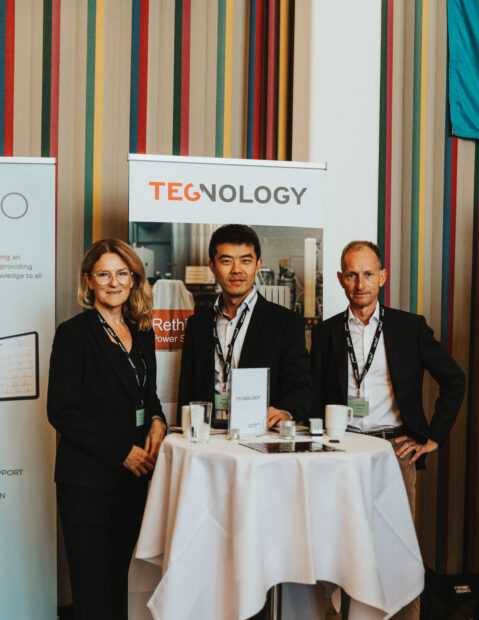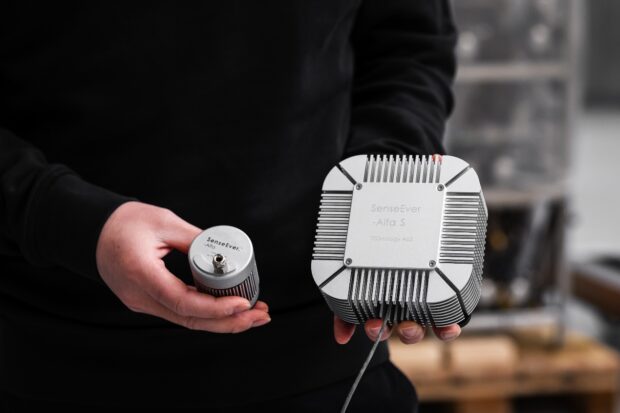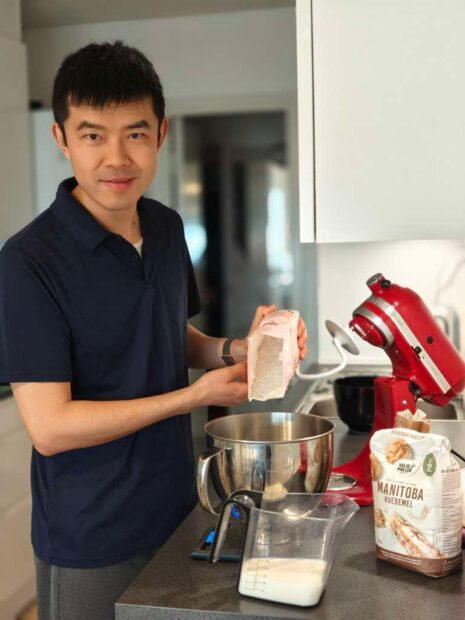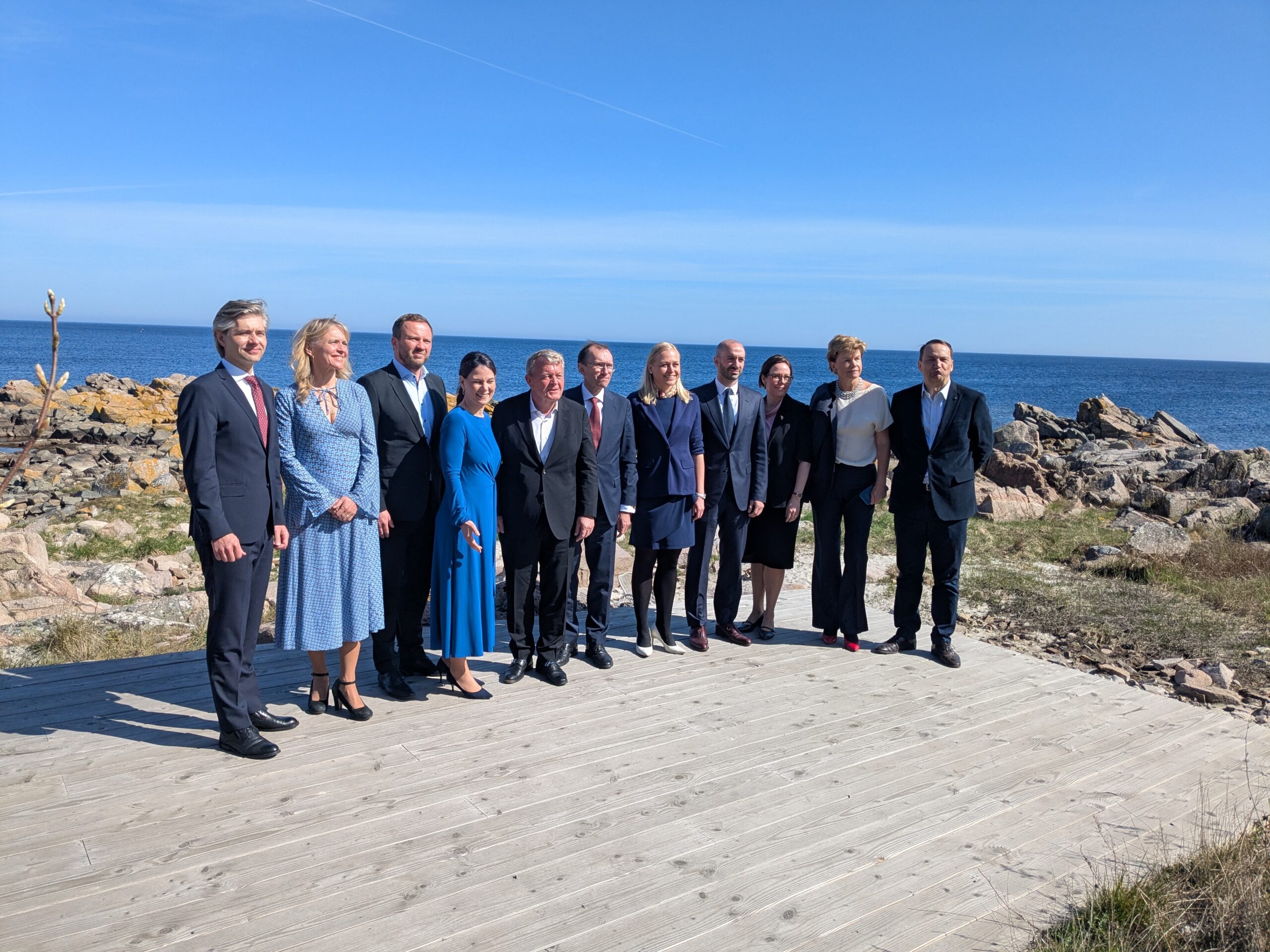In the autumn of 2008, 26-year-old Hao Yin arrived in Denmark to pursue his PhD at Aarhus University. His doctoral research focused on thermoelectric generator (TEG) materials, which convert heat energy into electricity.
Coming from hot, humid Hangzhou, a historic Chinese city where he had completed his bachelor’s and master’s degrees, Yin found Aarhus refreshingly cool, with September temperatures averaging below 20°C.
Theoretically, with the right material, even the temperature difference between the crisp Danish air and his body heat could generate electric power. But finding such materials was, of course, far from simple. Developing efficient, mass-producible TEG materials had long been a challenge for scientists due to the high costs of rare elements or issues of material stability.
Two years later, Yin made a breakthrough at the university lab, synthesising a stable phase of a high-performance TEG material. This achievement earned him a patent and led to his position as TEGnology’s lead engineer.
Yet transforming lab success into marketable solutions is never smooth. Early commercialisation efforts over five years failed, and the company faced dissolution.
Determined to prove the value of the technology, Yin stepped into the role of co-owner in 2017 and took charge of the company’s operations, holding on to the pursuit of market opportunities through trying times.
Now 43, he has witnessed the company’s turnaround over the past five years: supplying green solutions to over ten Danish companies to support their Industrial Internet of Things (IIoT) infrastructures, as well as expanding the company’s reach internationally.
“It’s been a long journey marked by challenges, as well as growth,” Yin says.

Learning to Explore the Unknown
Yin traces the roots of his entrepreneurial journey to his time at Aarhus University. In the lab, he obtained his first patent, but more importantly, from the classroom, he adopted an explorative mindset that completely changed his research approach.
While conducting doctoral research, Yin took several undergraduate and master’s courses out of curiosity as a foreign student. In the first class, he was surprised by the local students’ active questioning. “They focused much more on exploring their own questions rather than textbook knowledge,” Yin recalls.
The exam format in Denmark also puzzled him. He was assigned a main theme from the course curriculum through a draw and had to immediately give an oral presentation of the topic with his own logic.
“I was completely lost at first,” Yin admits. “But this experience taught me to identify what is important. After all, in research, we explore things without someone giving specific hints beforehand.”
Having studied materials science for eight years, he started to force himself to question even familiar concepts. In fact, this process deepened his understanding of an old Chinese saying: “Break the pot to get to the bottom”—to leave no stone unturned in the pursuit of answers.
His efforts bore fruit. In 2011, he published a paper on producing a stable phase of β-Zn4Sb3, a semiconductor with high thermoelectric efficiency and lower costs. His work caught the attention of Danish entrepreneur Flemming Bjørn Hansen, who later secured exclusive rights to Yin’s and Aarhus University’s relevant patents and established TEGnology, where Yin was hired as its first engineer.
Navigating Failure, Seizing Opportunity
For TEGnology’s first five years, Yin and his colleagues focused on a prototype to recycle waste heat from combustion engines in heavy vehicles. According to the U.S. Environmental Protection Agency, 70%–86% of energy from fuel is lost due to engine and driveline inefficiencies.
Yet, at the time the prototype was completed in 2016, the automotive industry decided to shift its focus to electric vehicles. TEGnology found itself losing key clients and funding. Meanwhile, there were questions about TEG efficiency in academia and industry, since the harvested energy was only sufficient to power small equipment.
Yin advised the management team to develop alternative applications for their hard-won technological outcomes, “if one scenario was no longer available, others might be.” However, developing new products seemed out of the question, as the company could no longer afford to pay salaries at the time. For Yin, the situation was even more precarious: without a salary, his work visa would be revoked unless he changed job or became self-employed.
Yin chose to stay with the company by taking over the role of co-owner and CTO in 2017, unwilling to let years of work go to waste.
“It was the toughest time,” he recalls. During the week, he worked and slept in the office in Jutland, only going home to see his wife and young daughter in Copenhagen at the weekend.
Even so, he still believed in their TEG’s market potential. IIoT’s reliance on large amounts of sensors and the rich data they generate could be an opportunity. In the coming green digital era, an industrially affordable, carbon-neutral power generator or self-powered sensor must have their own value.
A turning point came in 2019, when Alfa Laval, a global manufacturing company also with key technology focus on heat transfer, invited TEGnology to join its newly established innovation house, aiming at accelerating Alfa Laval’s digital and sustainable transitions with new ideas from start-ups.
Recognising the opportunity, Yin decided to try again. In that year, he officially stepped into the role of CEO, leading the company to develop SensEver Alfa, a cube-shaped TEG power supply operating under both large and small temperature differences, and SensEver HSI, a hot surface indicator helping workers identify overheated pipes and avoid workplace burns.
Today, these products support factories across multiple industries, reducing energy consumption and environmental impacts caused by disposed batteries. SensEver HSI has iterated to incorporate client feedback, sending real-time warning messages and temperature data to the factory’s control room as a self-powered sensor. Yin is pleased that their products now supply not only the energy for sensors to function, but also the “lifeblood”—the data—that keeps IIoT alive.
Moreover, he is particularly proud of their contribution to production safety. A transnational pharmaceutical client reported a drop of average annual scalding incidents from twelve to zero after installing SensEver HSI.
“While we design for the digital era, human-centric value remains at the core of our vision and mission,” Yin says.

Eyeing the Chinese Market for Further Growth
Despite receiving funding for high-tech start-ups from Denmark and the EU, Yin emphasises the importance of capturing dynamic market needs to establish a real, sustainable business. TEGnology’s first prototype still sits in his office along with his daughter’s photos, as a reminder of the company’s first lesson.
Besides the Danish market, vast opportunities lie overseas. With a rebuilt international team of ten people, TEGnology is strengthening connections with key markets such as Germany and Japan.
Yin sees significant potential in the Chinese market in particular, where recent carbon emission regulations for the first time impose hefty fines on companies exceeding emission quotas.
In November 2023, Yin attended the China International Import Expo in Shanghai as a representative of Nordic innovative firms. TEGnology’s products attracted local business owners from different industries. “They understand that adopting cutting-edge innovations could give them a competitive edge in the next round of market reshuffle,” he notes.
With agile R&D and flexible customised solutions, Yin looks forward to collaborating with Chinese partners on built-in sensors for smart buildings and factories, leveraging the company’s latest Flex-TEG® technology, a bendable material with enhanced thermoelectric efficiency while reducing costs by 95%.
Denmark and China have launched a three-year Green Joint Work Programme to foster sustainable and cost-effective green transition cooperation. Yin hopes TEGnology can contribute to this cross-border cause.
“When taking an uncharted path, there are always risks,” he reflects on his adventures in Denmark over the past seventeen years. “But it’s exactly because no one has succeeded before that our explorations matter.”














